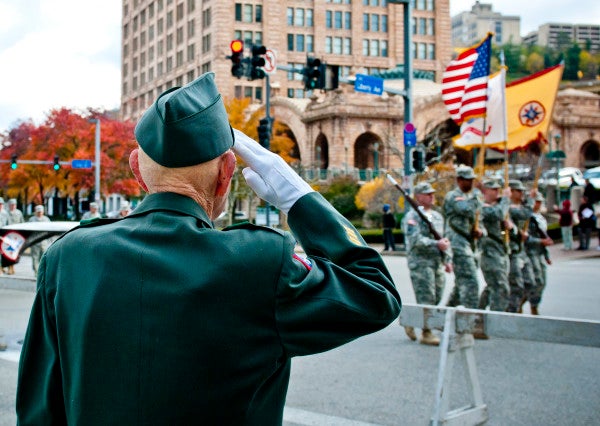How Many Veteran Charities Are Too Many?
I received an email today informing me of a new, non-profit group supporting veteran entrepreneurs. As I was reading through...

I received an email today informing me of a new, non-profit group supporting veteran entrepreneurs. As I was reading through the email, I had two thoughts. First, this is a great program, and second, this program already exists. It made me think about all of the charities and programs aimed at helping veterans, and I wondered, are there too many veteran-focused charities?
Before sharpening the pitch forks, I think the answer is no. However, it is worth further exploring the efficiency of multiple charities with the same mission.
When I question if there are too many charities, I’m not referring to people raising money for a one-time effort. If you’re thinking of raising money to build a ramp at someone’s home, go for it. Same goes for those families and friends putting together care packages for their loved one’s unit during the holidays. Those efforts are important to community engagement and should continue to happen. What I am referring to here are the ongoing, registered programs with executive directors and full-time staff.
I will be naïve for a moment and assume that everyone who has started or is thinking of starting a charity has the best interest of veterans in mind. (Of course, the New York Times provides a good example of someone who is in no way charitable and should be put in a dark hole for a long time.) However, even assuming all charities are good, there is only so much money to be donated by the public. If too many charities begin to ask for donations, the potential donors could become immune or spread their funds so thin that no single charity receives enough to make an impact.
If you are thinking of starting a charity, I applaud and thank you for your commitment and support. Also, I want you to ask yourself a few questions and do some research. Is another organization already addressing this issue? If so, is there a way to partner with them or start a new chapter of their program in your area? If someone is already addressing the issue that you want to tackle, do not halt your efforts, but do some research on how you can build on it, rather than duplicate it. Charity Navigator is a great resource for determining how a charity is using its money. If you find an organization spending 98% of donations on an executive director salary, then definitely start your own and inform the community about how you will do things differently. Veterans deserve all our support; let’s be intelligent and coordinated as we provide them the resources they deserve.
For those of you looking to support an existing charity, I also thank you and suggest you do some soul searching and some research. For the soul searching, ask, what is important to you. Do you want to put your money towards job training or building adaptive housing? Both are very important endeavors, but which one speaks to you? If you focus your time and money on an area you really believe in, I think both you and the charity will gain more from the relationship. Once you decide on the area you want donate to, you should do the same research to determine which charities are making a difference towards that cause. Charity Navigator is again a good tool for this, as well as CharityWatch, and Guidestar. The three sites generate charity ratings using different formulas, so making a comparison between the three is a smart idea.
Whether you’re looking to start your own charity or donate to a cause you believe in, be sure to do your research so you make smart decisions with your time and money.
Joshua Holley was an enlisted Marine from 2002 to 2006. After his military service he obtained his Bachelor’s and Master’s degrees in accounting from the University of Tennessee and Vanderbilt University, respectively, and is currently a financial consultant with a Big Four accounting firm.